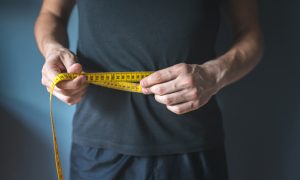In the realm of health and wellness, the quest for the ideal diet is an enduring journey. For women, in particular, finding the right balance of nutrition is not just about weight management but also about supporting overall well-being, hormonal balance, and longevity. In this article, we delve into the nuances of what constitutes the best diet for women, considering various factors such as age, lifestyle, and health goals.

Understanding Nutritional Needs
Before delving into specific diets, it’s crucial to understand the unique nutritional needs of women. Generally, women require a diverse range of nutrients, including calcium, iron, folate, and omega-3 fatty acids, to support reproductive health, bone density, and overall vitality. Additionally, factors such as menstruation, pregnancy, and menopause introduce fluctuations in nutritional requirements.
The Mediterranean Diet: A Time-Tested Approach
One dietary approach that consistently emerges as beneficial for women is the Mediterranean diet. Characterized by abundant plant-based foods, healthy fats, lean proteins, and moderate wine consumption, this diet offers a plethora of benefits. Rich in antioxidants, vitamins, and minerals, the Mediterranean diet promotes heart health, cognitive function, and weight management. Moreover, its emphasis on olive oil, nuts, and fatty fish provides essential fatty acids crucial for hormonal balance and skin health.
Plant-Based Diets: Nourishing Women Inside Out
Plant-based diets, including vegetarianism and veganism, have gained traction in recent years for their myriad health benefits. For women, opting for a plant-based diet can offer advantages such as lower risk of heart disease, improved digestion, and better management of menopausal symptoms. By prioritizing fruits, vegetables, whole grains, legumes, and nuts, women can fulfill their nutritional needs while reducing their intake of saturated fats and cholesterol.
Low-Carb and Keto: Worth Considering?
Low-carbohydrate diets, including the ketogenic diet, have garnered attention for their potential to promote weight loss and stabilize blood sugar levels. While some women may find success with these diets in the short term, long-term adherence and sustainability remain concerns. Furthermore, restrictive low-carb diets may lack essential nutrients found in carbohydrates, potentially impacting energy levels and hormonal balance.
Intermittent Fasting: Balancing Health and Hormones
Intermittent fasting has emerged as a popular dietary strategy for weight management and metabolic health. By cycling between periods of eating and fasting, women may experience improvements in insulin sensitivity, cellular repair, and hormone regulation. However, it’s essential to approach intermittent fasting with caution, particularly for women with underlying health conditions or hormonal imbalances. Consulting with a healthcare provider is advisable before embarking on any fasting regimen.
Tailoring the Diet to Individual Needs
Ultimately, there is no one-size-fits-all approach to the best diet for women. Factors such as age, activity level, metabolic rate, and underlying health conditions must be considered when designing a dietary plan. Moreover, listening to one’s body and honoring its cues is paramount. Paying attention to hunger signals, energy levels, and overall well-being can guide women in making informed dietary choices that promote health and vitality.
Conclusion
In the quest for the best diet for women, it’s essential to prioritize balance, variety, and nutrient density. Whether opting for the Mediterranean diet, embracing a plant-based lifestyle, or experimenting with intermittent fasting, women should focus on nourishing their bodies and supporting their unique health needs. By combining scientific evidence with individual intuition, women can embark on a journey towards optimal health and wellness.



